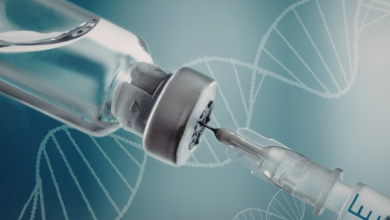The Vital Role of Physical Therapy in Modern Healthcare

Introduction
Physical therapy, also known as physiotherapy, is a crucial component of modern healthcare. It focuses on the diagnosis, treatment, and prevention of physical impairments, disabilities, and pain through a variety of techniques and exercises. This article explores the importance, benefits, and diverse applications of Physiotherapie Überlingen in enhancing overall health and quality of life.
The Importance of Physical Therapy
Holistic Approach to Health
Physical therapy adopts a holistic approach, addressing not only the physical aspect of recovery but also considering psychological and social factors. This comprehensive method ensures that patients receive personalized care tailored to their unique needs and conditions.
Pain Management
One of the primary roles of physical therapy is pain management. Through manual therapy, therapeutic exercises, and modalities such as ultrasound and electrical stimulation, physical therapists help alleviate pain without the need for long-term medication use. This is particularly beneficial for patients with chronic pain conditions like arthritis, fibromyalgia, and back pain.
Rehabilitation and Recovery
Physical therapy is essential in the rehabilitation process following surgery, injury, or illness. It helps restore function, improve mobility, and prevent further complications. Whether recovering from a sports injury, orthopedic surgery, or stroke, physical therapists design individualized rehabilitation programs to promote optimal recovery.
Benefits of Physical Therapy
Improved Mobility and Function
Physical therapists use targeted exercises and stretches to enhance flexibility, strength, and coordination. This is especially beneficial for individuals with mobility issues due to aging, injury, or chronic conditions. Improved mobility leads to greater independence and a better quality of life.
Prevention of Injuries and Disabilities
Through education and preventive measures, physical therapists help individuals avoid injuries and disabilities. They provide guidance on proper body mechanics, ergonomics, and exercise techniques, reducing the risk of injuries in daily activities and sports.
Enhanced Cardiovascular Health
Physical therapy plays a significant role in cardiovascular rehabilitation. It helps patients recover from heart attacks, manage heart disease, and improve overall cardiovascular health through supervised exercise programs and lifestyle modifications.
Management of Age-Related Issues
As people age, they may face various physical challenges, such as balance problems, joint pain, and decreased mobility. Physical therapy addresses these issues, helping older adults maintain their independence and reduce the risk of falls and fractures.
Diverse Applications of Physical Therapy
Orthopedic Physical Therapy
Orthopedic physical therapy focuses on treating musculoskeletal injuries and conditions, such as fractures, sprains, and post-surgical recovery. Therapists use manual therapy, strength training, and modalities to restore function and reduce pain.
Neurological Physical Therapy
Neurological physical therapy is designed for individuals with neurological disorders, such as stroke, multiple sclerosis, and Parkinson’s disease. Therapists work on improving motor function, balance, and coordination, enhancing the patient’s ability to perform daily activities.
Pediatric Physical Therapy
Pediatric physical therapy addresses developmental delays, congenital conditions, and injuries in children. Therapists use play-based techniques to engage young patients and promote physical development, helping them achieve their developmental milestones.
Sports Physical Therapy
Sports physical therapy focuses on preventing and treating sports-related injuries. Therapists work with athletes to improve performance, enhance recovery, and prevent future injuries through specialized training programs and injury prevention strategies.
Conclusion
Physical therapy is an indispensable part of healthcare, offering a wide range of benefits from pain management to improved mobility and injury prevention. Its holistic and patient-centered approach ensures that individuals receive comprehensive care tailored to their specific needs. Whether recovering from an injury, managing a chronic condition, or striving for optimal health, physical therapy provides the tools and support necessary for a healthier, more active life.




